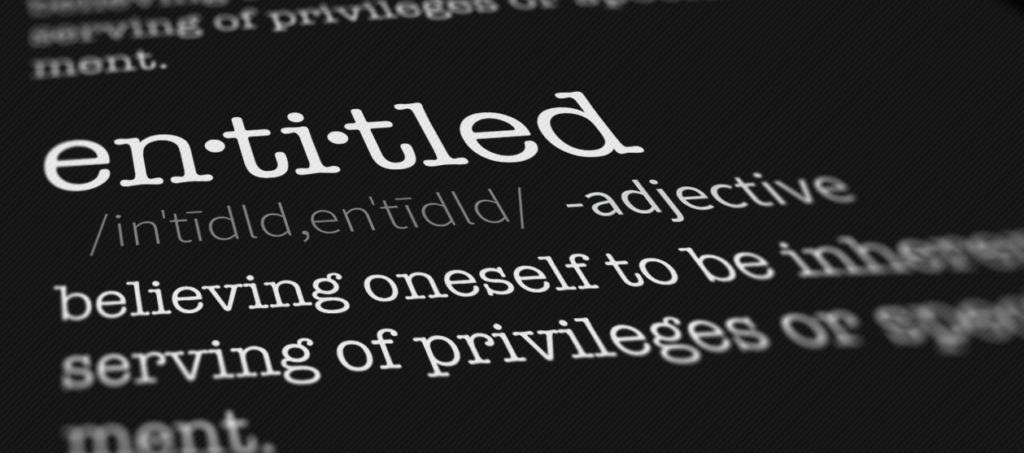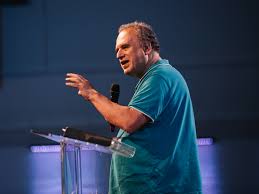
by Stephen Parsons
One of the incontestable facts about the Church of England is that parishes designated as conservative evangelical seem to have few problems in raising money. Other mainstream parishes around them are likely envious as they see large sums of money flowing into these churches. Expensive sound systems and huge reordering projects costing millions seem never to be a problem for these conservative congregations. Meanwhile the ordinary non-conservative parish next door struggles to pay the Parish Share and keep their plant in good order. For the first church, money appears easily; for the other it involves a hard and time-consuming struggle. What is the reason for this disparity? The answer is probably to be found in a single word – tithing.
The practice of tithing is held up to be a biblical practice with the authority of passages from Numbers and Leviticus. In a typical passage, like Numbers 18.21-24, it is a compulsory obligation to maintain the work of the Levites from the resources made available from tithe giving. This giving of the tenth or a tithe has been maintained as a model or principle on Jews and Christians ever since. In a typical conservative congregation, all the passages about tithing will be familiar. In many other authoritarian religious groups, whether or not part of the Christian tradition, it is applied as a matter of course. Full membership of that organisation will be withheld unless it can be shown that the member is giving a full tenth of their income.
It is my understanding that the income needed to own property in London, or one of the prosperous areas of the southeast of Britain, is well in excess of £80,000. Any church catering to this section of the population and has successfully persuaded them to give a tithe of their income, will be enormously wealthy. We see evidence of this kind of wealth when we see congregations in London employing and housing up to 14 clergy alongside support staff of various kinds. Tithing, when it is followed through and literally practised, allows many conservative parishes to be both wealthy and exercise considerable power within their dioceses and networks. The power that comes with such institutional wealth is not always used well. Sometimes money is withheld from central church funds as a way of trying to manipulate bishops to follow a particular line of teaching favoured by the conservative group. If we think of the various sections of the Church of England as resembling political parties, we can see clearly how the uber-wealthy right wing conservative section of the Church has the loudest voice in many of the debates over sexuality and other issues, where Christian beliefs and politics coincide.
My reader will not be surprised to learn that I believe that there are other problems to be faced over tithing apart from using parish wealth to promote church political agendas. My comments on the potential dangers of being part of a tithing congregation are based, not on an individual Church of England parish but on the experience of those whose lives were seriously damaged by their membership of Peniel Church Brentwood. This congregation, now Trinity Church, is an independent Pentecostal church formerly under Bishop Michael Reid. Reid, as my long-term readers will know, presided over this cult-like church which attempted to provide for every social and spiritual need among its members. The more involved that the members became in the life of the church, the more their own power for making decisions over things like jobs, careers, relationships and social life came under the scrutiny and control of the church and its leaders. As contact with non-member family lessened, so a dependence on the leadership and its approval for all their life decisions increased. Peniel was clearly at the extreme end of a spectrum of cult-like controlling congregations, but the financial aspects of its life seem to be similar to any church insisting that it has the authority to decide on the level of church giving from its members. There are two major questions that should be asked by anyone who becomes convinced of the necessity for tithe giving. In the Old Testament passages that support the idea of the tithe, the tenth, was clearly money that supported the work of the priests and the maintenance of worship conducted in the temple or elsewhere. The influence of the Temple officials extended to cover a legal system and the areas of administration of society now the responsibility of a civil service. The claim that the money was ‘giving to God’ could be justified since everyone would have accepted the understanding that the whole of society belonged to God. Such a claim would not work today. The resources need to keep our schools, police forces and hospitals are paid for by the taxes we pay. Few people apart from the wealthy can realistically pay a tithe out of the money that remains. Money of course is needed but the teaching that Numbers provides literal guidance over what should be paid is a position that needs to be debated. Meanwhile we note that the money that pours into conservative parishes is not just paying the salaries and housing of numerous curates, it is, as we have suggested, also buying power and ‘political’ influence in a church where power is about control of the entire institution. The genius of the traditional Church of England has always valued the simultaneous coexistence of different styles of worship and even theologies so that everyone may find a spiritual home. The contemporary scene is one where the theology in operation within the powerful conservative congregations is oppositional. There is only room here for a single theological narrative, the one favoured by the leader. The internal logic of having a theology that is inerrant demands that you seek to dominate and even destroy whoever does not agree with you. The language of conflict and raw power is in practice muted in theological discussions, but one still senses in conversations with conservatives how little understanding they have of those who do not understand or concur with the idea that ‘Scripture clearly teaches’. The politicisation of church life, which is in process today, gives us a painful conflict between those who continue to search for and explore truth and those believe they already have it. Members of churches which believe they possess the truth are giving large sums of money, not to God but to enable an unholy conflict aimed at undermining and discrediting those who continue to search and ask questions of their faith.
A second question to be asked of those who give a tithe of their income is whether it is being given freely and with joy. Without knowing, of course, the precise message that accompanies the call for a tithe in conservative churches, one suspects that there is often a hidden element of compulsion about the appeal. At Peniel the compulsion was open and blatant. If you don’t give what we determine is your due, then you cannot claim membership of this congregation. Another way of saying the same thing is to say ‘unless you give a tithe, you do not belong’. Belonging involves the fulfilment of a powerful area of human need. Not to belong is to feel the chill air of loneliness and rejection. In a Christian context the failure to belong evokes another deeper anxiety, the loss of salvation and a rejection from the hope of heaven. Thus, the giving of a tithe is not being on a path to the joy of spontaneous giving. Rather, it is a way of avoiding the burden of fear, one that has been placed on one’s back by a manipulative leadership. This leadership may well be interested also in using the tithe from their members to increase their prestige and power. In independent churches like Peniel the tithe allowed for for the boosting of the financial status of leaders to an extraordinary degree. In the case of Michael Reid and his successor, Peter Linnecar, this involved enormous salaries of £70k+ being received by these leaders. Another financial ‘scam’ that allowed leaders to benefit from the wealth of other tithing churches within their network, was to invite their leaders to preach and then, after accommodating them in luxury hotels, reward them with an enormous love offering. This invitation would naturally be reciprocated and Peniel’s leaders would jet across the world to preach and receive the same lavish hospitality. Looking at the practice of giving and receiving business class preaching invitations, one sees something close to a simple racket. Whether the multimillion tithe giving congregations in the Church of England ever practise the same system of sponsoring each other’s leaders is not something I can know. Certainly, extravagant pulpit swaps are a feature of church life in the States, and it must be tempting for aspiring leaders in the conservative circles in this country to be on the look-out for such opportunities.
Tithing one’s income to give generously to the local church would appear a way to stave off the ever-present threat of insolvency and debt in many congregations. But, as we have claimed, the successful imposition of such an incredibly high standard is likely to be combined with a darker narrative. Within the world of tithing congregations, there is likely to be manipulation, stress and straightforward fear. I find that even the use of the word brings into my mind controlling and coercive relationships in which emotional blackmail is widely practised. I end with my two questions. Where does the money really go? Is this high standard of giving really being achieved without the benefit of manipulative methods, such as bullying, indirect threats and the imposition of fear? The Lord loves a cheerful giver. I am not sure he wants anyone who has been bludgeoned into parting with more that can be afforded.








